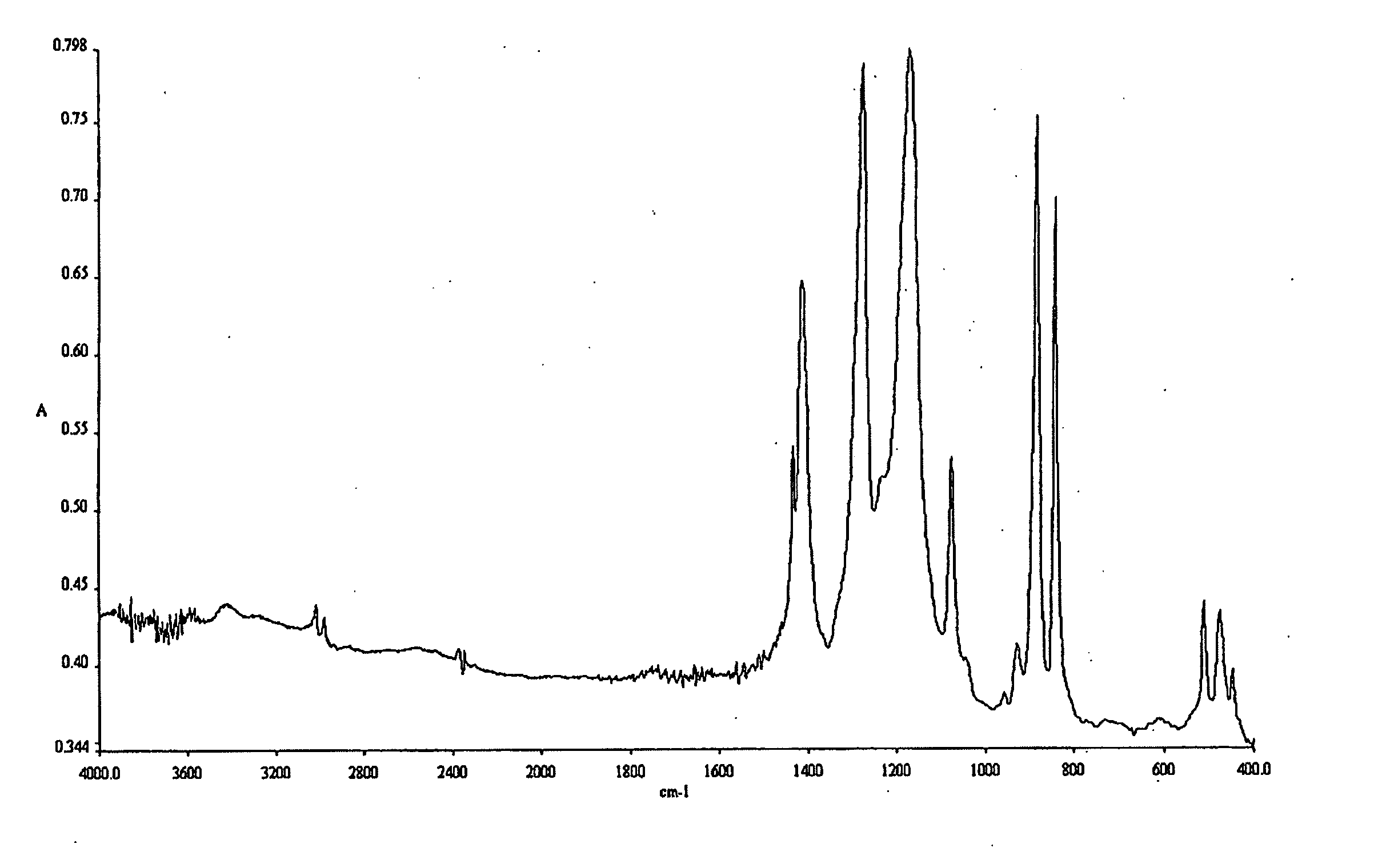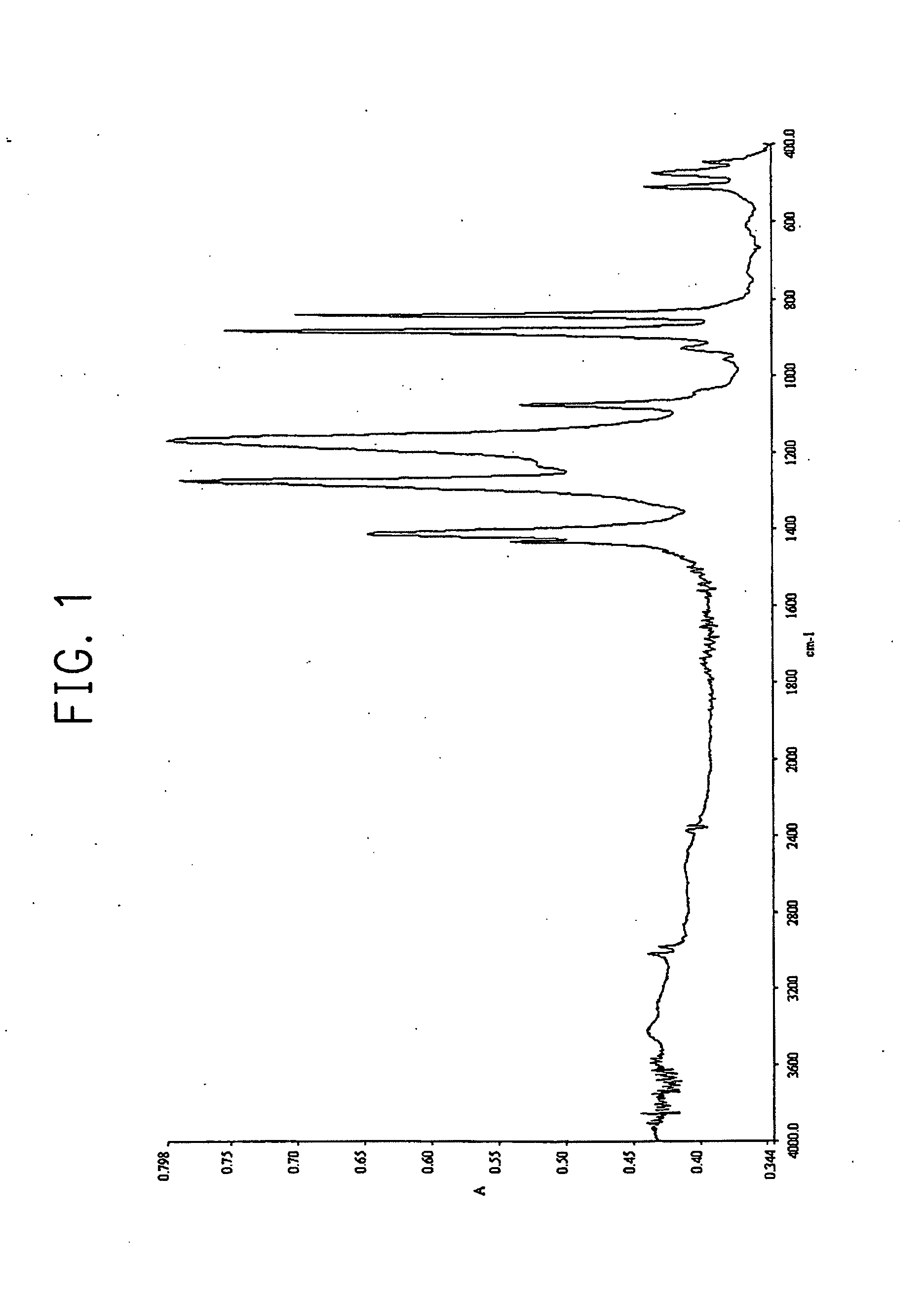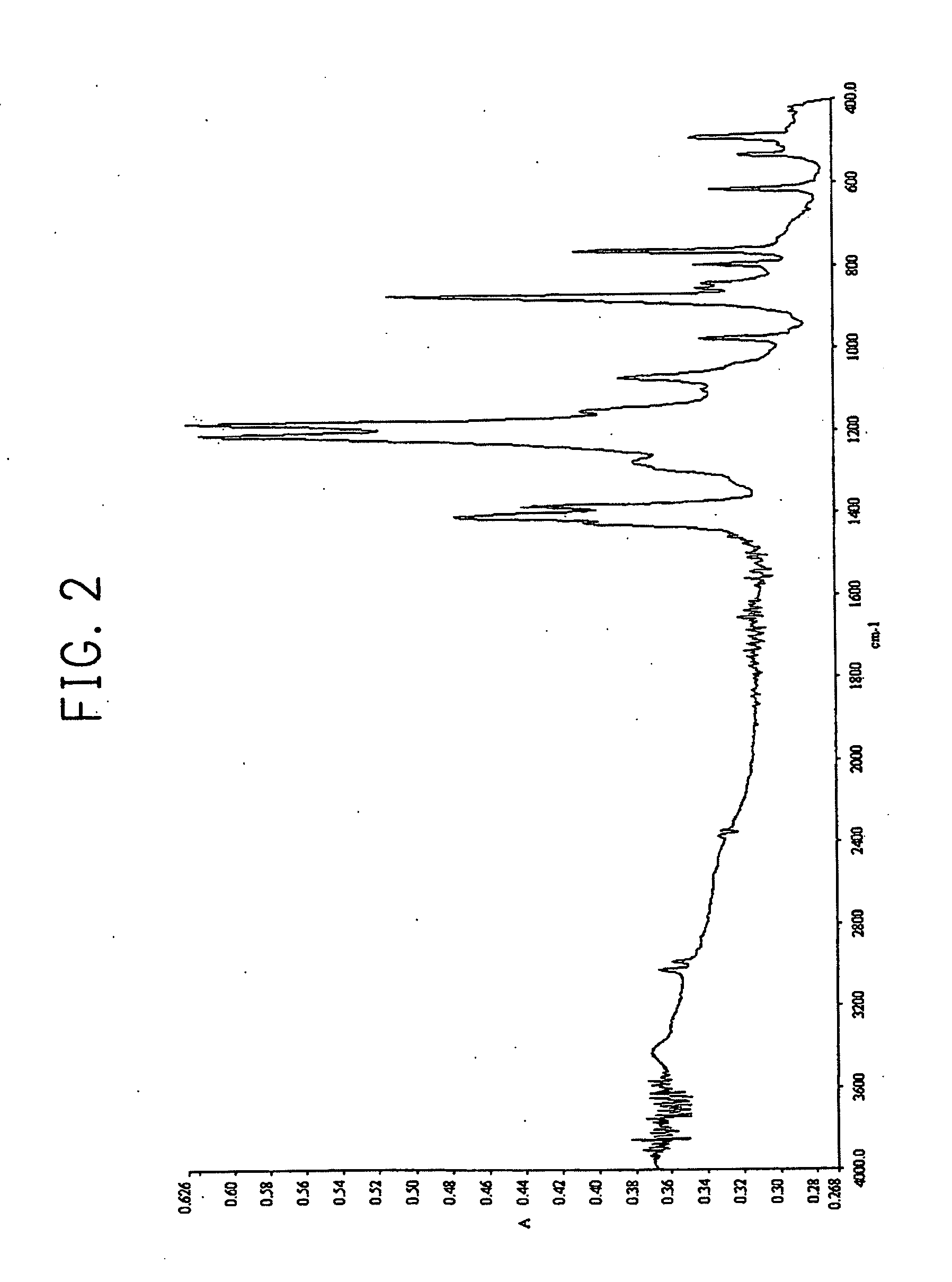Method of forming thin film
a thin film and film technology, applied in the direction of organic chemistry, transportation and packaging, synthetic resin layered products, etc., can solve the problems of no process for efficiently preparing, wide weight distribution of obtained polymers, and purity of crystal form i
- Summary
- Abstract
- Description
- Claims
- Application Information
AI Technical Summary
Benefits of technology
Problems solved by technology
Method used
Image
Examples
preparation example 1
(Synthesis of CF3(VdF)nI)
[0211](1-1) Synthesis of CF3(VdF)8.1 (n=8.1)
[0212]Into a 300 ml stainless steel autoclave equipped with a valve, pressure gauge and thermometer was poured 50 g of HCFC-225, and while cooling with a dry ice / methanol solution, 0.78 g of di-n-propylperoxy dicarbonate (50% by weight of methanol solution) was added and the inside of a system was sufficiently replaced with nitrogen gas. After the inside pressure of the system was reduced, 5.2 g of CF3I was introduced through the valve, and after heating of the system up to 45° C., VdF was introduced until the inside pressure of the system became 0.8 MPaG. While maintaining the inside pressure and temperature of the system at 0.8 MPaG and 45° C., respectively, VdF was continuously introduced and 9-hour reaction was carried out.
[0213]After completion of the reaction, the inside temperature of the system was decreased to 25° C. and the unreacted substances (VdF and CF3I) were released. Then the precipitated solid rea...
preparation example 2
(Synthesis of CF3CF2(VdF)nI)
[0240](2-1) Synthesis of CF3CF2(VdF)10.9I (n=10.9)
[0241]Into a 300 ml stainless steel autoclave equipped with a valve, pressure gauge and thermometer was poured 50 g of HCFC-225, and while cooling with a dry ice / methanol solution, 0.08 g of di-n-propylperoxy dicarbonate (50% by weight of methanol solution) was added and the inside of a system was sufficiently replaced with nitrogen gas. After the inside pressure of the system was reduced, 1.96 g of CF3CF2I was introduced through the valve, and after heating of the system up to 45° C., VdF was introduced until the inside pressure of the system became 0.8 MPaG. While maintaining the inside pressure and temperature of the system at 0.8 MPaG and 45° C., respectively, VdF was continuously introduced and 9-hour reaction was carried out.
[0242]After completion of the reaction, the inside temperature of the system was decreased to 25° C. and the unreacted substances (VdF and CF3CF2I) were released. Then the precip...
preparation example 3
(Synthesis of I(VdF)nC4F8(VdF)mI)
[0245](3-1) Synthesis of I(VdF)n(CF2CF2)2(VdF)mI (n+m=8.7)
[0246]Into a 300 ml stainless steel autoclave equipped with a valve, pressure gauge and thermometer was poured 50 g of HCFC-225, and while cooling with a dry ice / methanol solution, 0.27 g of di-n-propylperoxy dicarbonate (50% by weight of methanol solution) was added and the inside of a system was sufficiently replaced with nitrogen gas. After the inside pressure of the system was reduced, 1.96 g of I(CF2CF2)2I was introduced through the valve, and after heating of the system up to 45° C., VdF was introduced until the inside pressure of the system became 0.8 MPaG. While maintaining the inside pressure and temperature of the system at 0.8 MPaG and 45° C., respectively, VdF was continuously introduced and 9-hour reaction was carried out.
[0247]After completion of the reaction, the inside temperature of the system was decreased to 25° C. and the unreacted substances (VdF and I(CF2CF2)2I) were rele...
PUM
| Property | Measurement | Unit |
|---|---|---|
| number average degree of polymerization | aaaaa | aaaaa |
| number average degree of polymerization | aaaaa | aaaaa |
| number average degree of polymerization | aaaaa | aaaaa |
Abstract
Description
Claims
Application Information
 Login to View More
Login to View More - R&D
- Intellectual Property
- Life Sciences
- Materials
- Tech Scout
- Unparalleled Data Quality
- Higher Quality Content
- 60% Fewer Hallucinations
Browse by: Latest US Patents, China's latest patents, Technical Efficacy Thesaurus, Application Domain, Technology Topic, Popular Technical Reports.
© 2025 PatSnap. All rights reserved.Legal|Privacy policy|Modern Slavery Act Transparency Statement|Sitemap|About US| Contact US: help@patsnap.com



